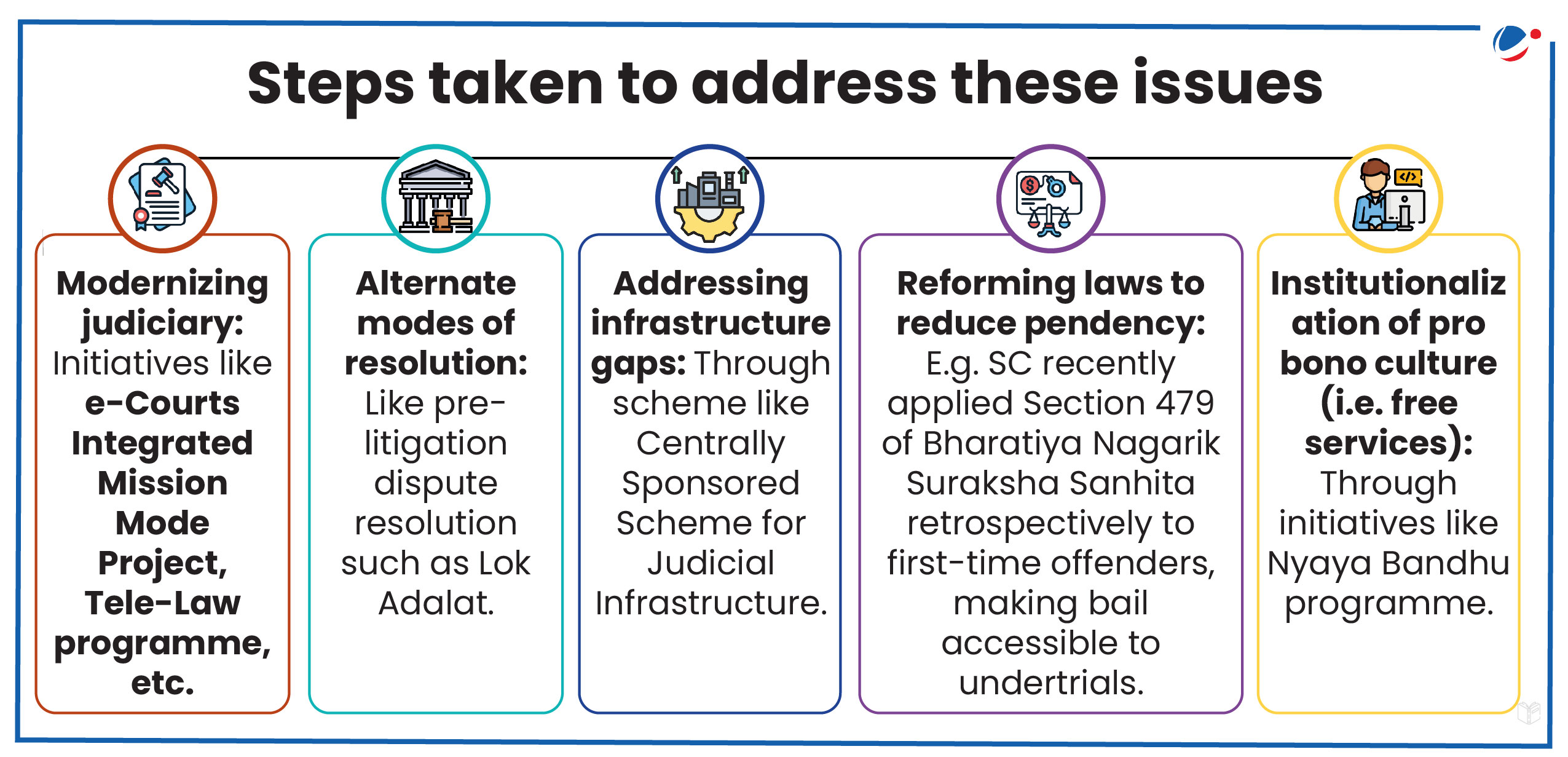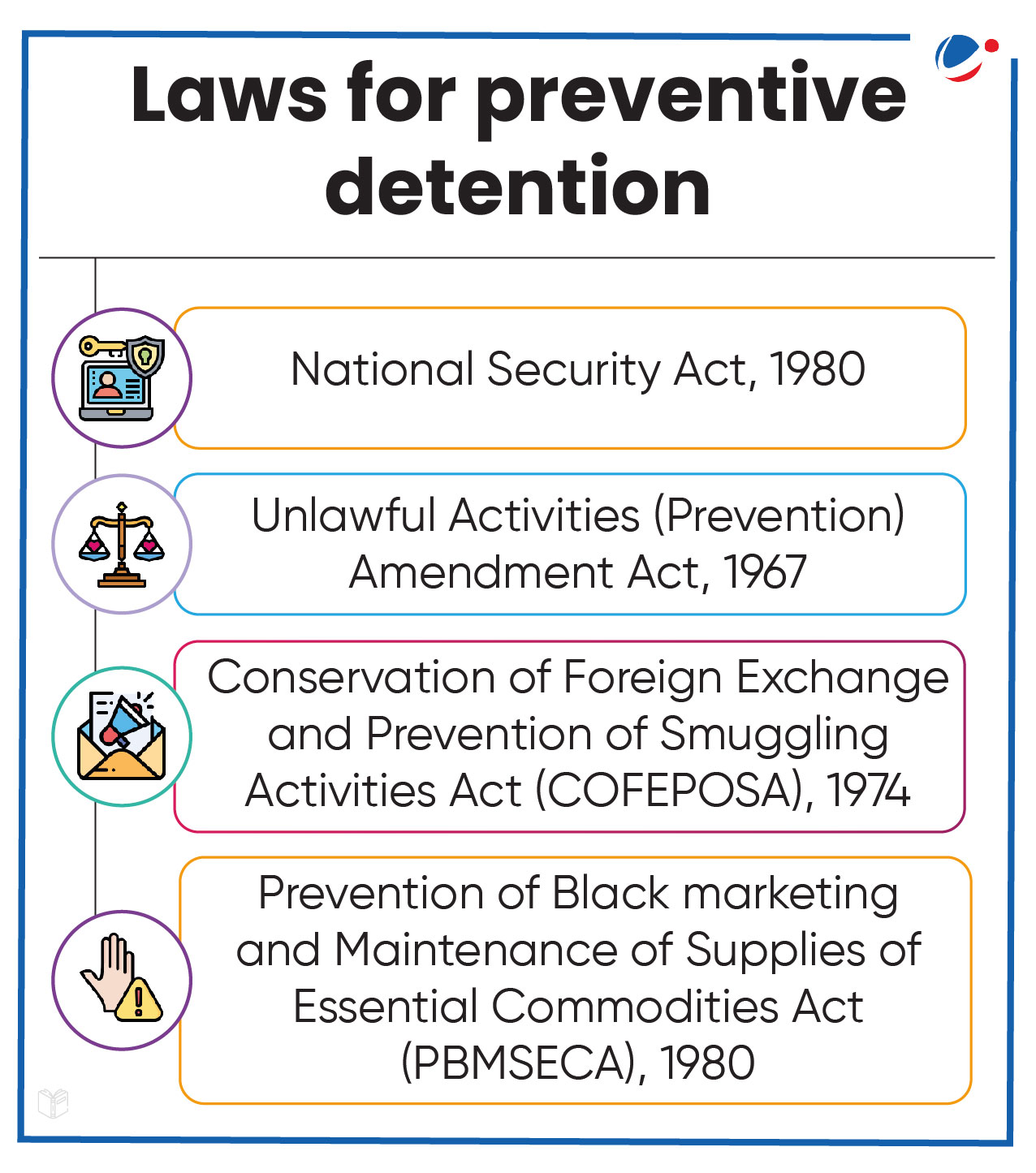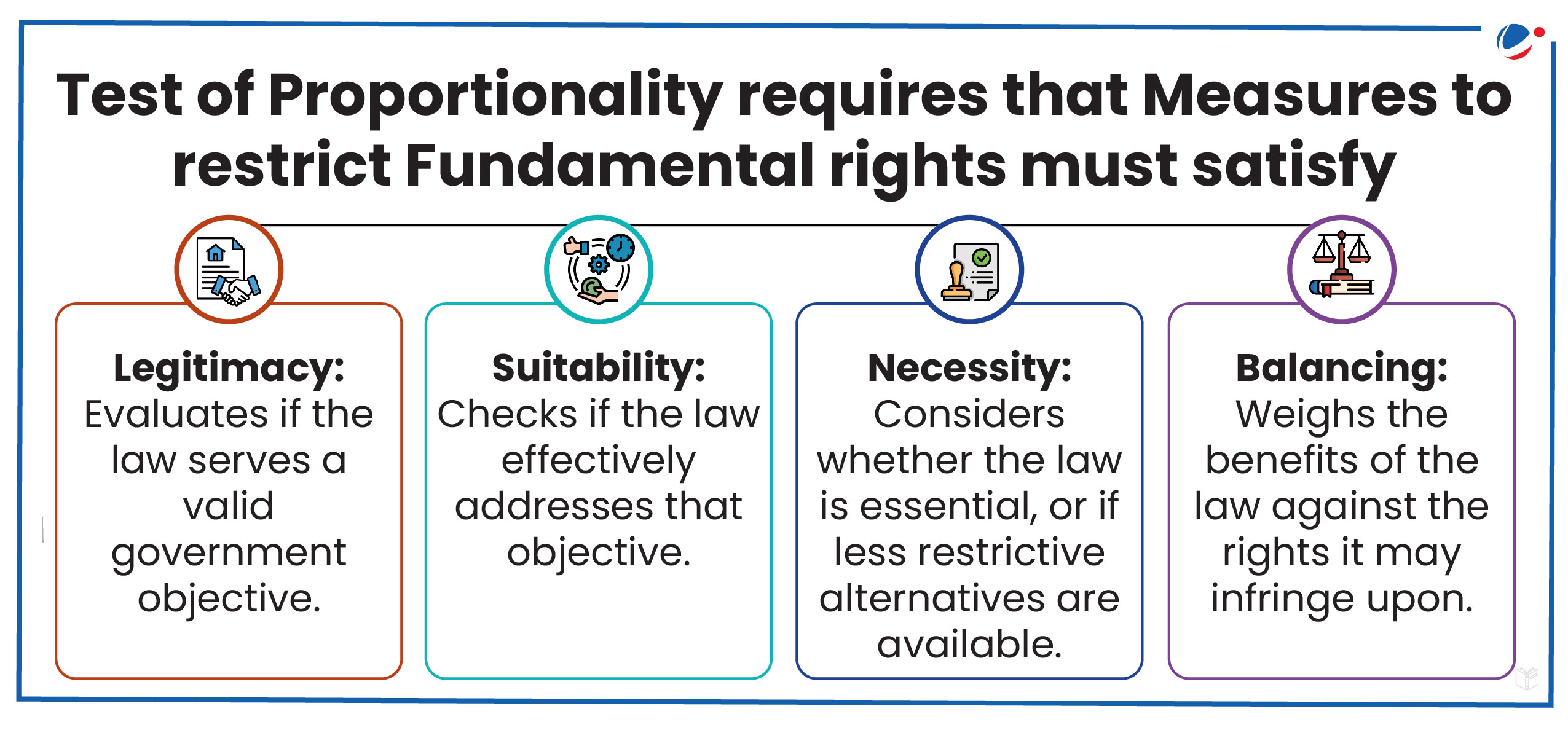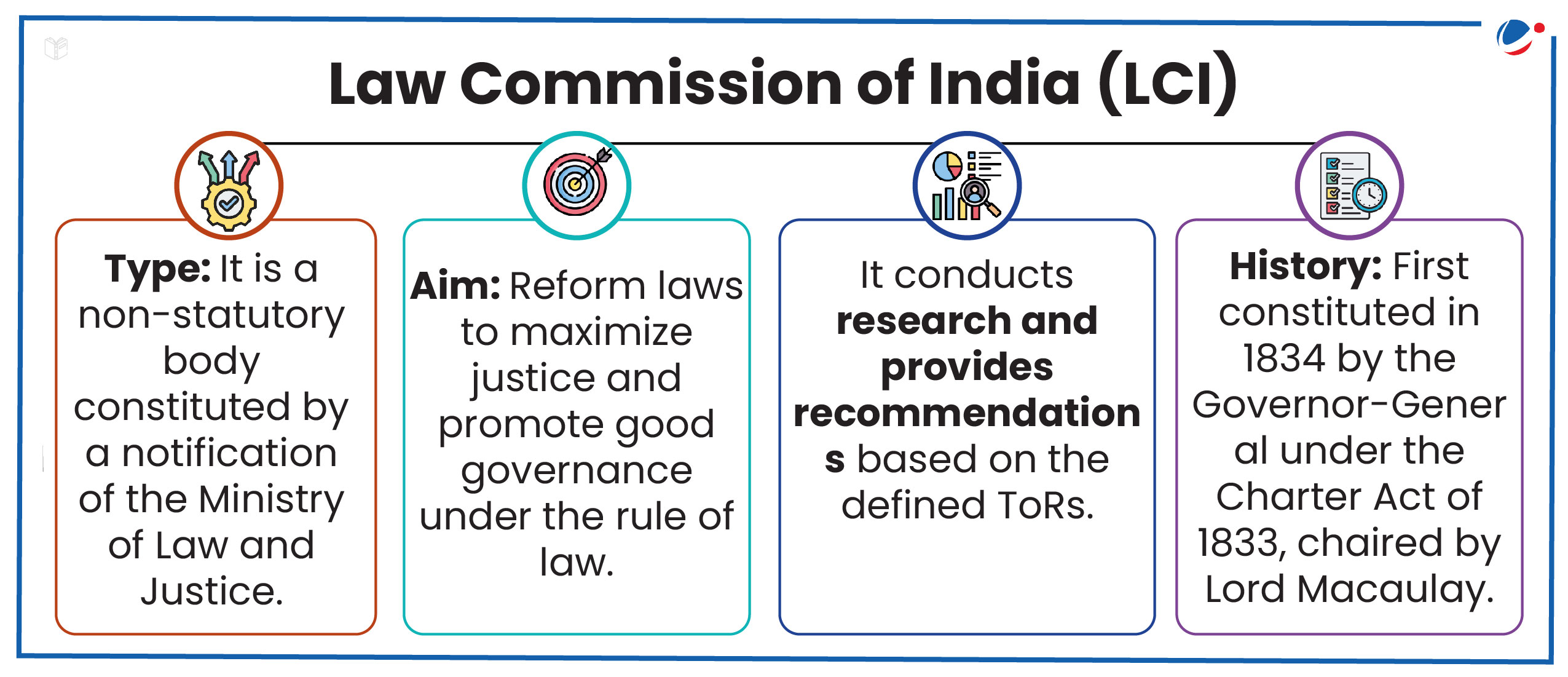President called out ‘Black Coat Syndrome’, and urged Supreme Court to Lead with Justice for All.
- Highlighting the delay in Justice, the President used this term to describe anxiety experienced by ordinary citizens in court settings.
- Term is analogous to the “White Coat Hypertension” i.e. increase in people’s blood pressure in the hospital.
Reasons for such perception
- High pendency: As of August 31, 82,887 cases are pending in SC (National Judicial Data Grid).
- Additionally, delays in deciding serious crimes like rape leads to public perception of insensitivity in the judicial system.
- Frequent adjournments: It causes great mental and financial pressure specially for people traveling from villages to courts.
- Issues with district judiciary: For instance, only 6.7% of court infrastructure at the district level is female friendly.
- District-level courts significantly shape the public’s perception of the judiciary.

In Jaseela Shaji vs Union of India case (2024), the Supreme Court highlighted the rights of detenu (detained person) to make an effective representation against preventive detention.
- Preventive detention means detention of a person without trial.
Highlights of the Judgment

- Detenu has the right to be furnished with the grounds of detention along with the documents relied on for such detention.
- If there is failure or even delay in furnishing those documents, it would amount to denial of the right to make an effective representation under Article 22(5) of the Constitution.
- Article 22(5) mandates that detaining authority must:
- Inform detenu as soon as practicable of grounds on which detention has been made.
- Provide detenu the earliest opportunity of making a representation against detention order.
Preventive Detention
- Article 22(3) allows the authorities to detain individuals for preventive reasons, such as the maintenance of public order or national security.
- The constitution provides for certain safeguards:
- No preventive detention law should authorize the detention beyond three monthsunless an Advisory Board approves it.
- Grounds for preventive detention shall be communicated at the earliest.
- Provide earliest opportunity of making a representation.
Article Sources
1 sourceSupreme Court ruled that 14-day timeline for granting sanction for prosecution under UAPA, 1967 is mandatory and not discretionary.
About UAPA, 1967
- It provides for more effective prevention of certain unlawful activities of individuals and associations and for dealing with terrorist activities.
- Prosecution of individuals accused of terrorism requires prior sanction from government via two steps i.e.
- An independent authority must review evidence gathered by investigators and make a recommendation to government within seven working days. (Rule 3 of Unlawful Activities (Prevention) (Recommendation & Sanction of Prosecution) Rules, 2008)
- Government then has an additional seven working days to decide whether to grant or deny sanction based on authority’s recommendation (Rule 4).
As per the Ministry of Law and Justice, only 0.11% of cases were resolved through plea bargaining in 2022.
About Plea Bargaining
- It is an agreement between defense and prosecution where accused pleads guilty for a lesser offense or a reduced sentence.
- Introduced in 2006 as part of a set of amendments to CrPC.
- In section 290 of BNSS, plea bargaining has been made time bound and application can be made within 30 days from date of framing of charge.
- Application: Applies only to offenses punishable by up to seven years of imprisonment, with further restrictions excluding cases involving crimes against women, children, or socio-economic offenses.
Bombay HC struck down the 2023 amendment to Rule 3 of the IT Rules mandating establishment of Fact Checking Units (FCU)
- Verdict has been delivered in the Kunal Kamra vs Union of India case (2024).
Background
- The 2023 amendment [(3(1)(b)(v)] to IT (Intermediary Guidelines and Digital Media Ethics Code) Rules, 2021 empowered the Government to identify fake news pertaining to its business on social media platforms through FCU.
- Such news was to be flagged and taken down by the intermediary.
- Failure to do so would subject the intermediaries to a legal action and losing their safe harbor (legal immunity against third-party consent).
- In 2023, Supreme Court stayed the Centre’s notification establishing FCU in Press Information Bureau (PIB).
Key Observations by the HC
- Rules are ultra vires (unconstitutional) or beyond the powers of the IT Act, 2000.
- Violate the Principles of Natural Justice and Fundamental Rights under Articles:
- 14 [Equality before Law]
- 19 (1) (a) [Freedom of Speech and Expression]
- 19 (1) (g) [Freedom to practice any profession]
- 21 [Right to Life and Personal Liberty].
- Vague, does not clearly define fake or misleading news.
- Also, in the absence of "right to the truth," the State is not responsible for providing citizens with only accurate information determined by the FCU.
- Fail to satisfy the test of proportionality

President approves the constitution of the 23rd Law Commission for a three-year term, that is, from 1st September, 2024 to 31st August, 2027.
23rd Law Commission
- Mandate: To review and recommend legal reforms to enhance the Indian legal system.
- Composition: It will include a full-time chairperson, four members, and additional ex-officio and part-time members.
Terms of Reference (ToR)
- Review/Repeal of obsolete laws:
- Create a Standard Operating procedure for periodic review of existing laws for simplification.
- Based on the relevance, current economic needs, suggest repealing and amendments to the laws.
- Law and Poverty: Examine laws affecting the poor and conduct post-enactment audits of socio-economic legislation.
- Review of Judicial Administration:
- Ensure economic disposal of cases by elimination of delays and speedy clearance of arrears.
- Simplification of processes, harmonizing rules of various high courts.

- Directive Principles of State Policy (DPSPs): Examine existing laws and suggest reforms to ensure effective implementation of DPSPs and to attain the objectives set out in the Preamble.
- Gender Equality: Strengthen laws through examination and suggesting amendments.
- Revision of Central Acts to remove anomalies and inequities.
- Examine the impact of globalization on food security, unemployment and recommend measures for the protection of the marginalized.
Recently, the Governor of Karnataka gave approval for investigation for prosecution of the Chief Minister.
Sanction for prosecution:
- There is a requirement of grant of sanction before prosecution of a public servant to protect public servants from malicious prosecution.
- Competent authority for granting sanction: State or Central government (CrPC) and authority having power to remove the public servant (PCA).
Legal Framework:
- Section 218 of the Bharatiya Nagarik Suraksha Sanhita (BNSS) (earlier covered under Section 197 of CrPC)
- Section 17A (2018 amendment) and 19 of the Prevention of Corruption Act, 1988 (PCA).
Proposal for removal
The President of India attended the opening ceremony of the 16th ASOSAI Assembly organised by the Comptroller and Auditor General (CAG) of India in New Delhi.
About ASOSAI
- It is one of the Regional Groups of the International Organization of Supreme Audit Institutions.
- It was established in 1979 with 11 members, now the membership has grown to 48.
- The first Assembly and Governing Board meeting was held in New Delhi, India.
- India is holding the current chair of ASOSAI.
- At the Assembly, the Rules and Regulations of ASOSAI were approved.







